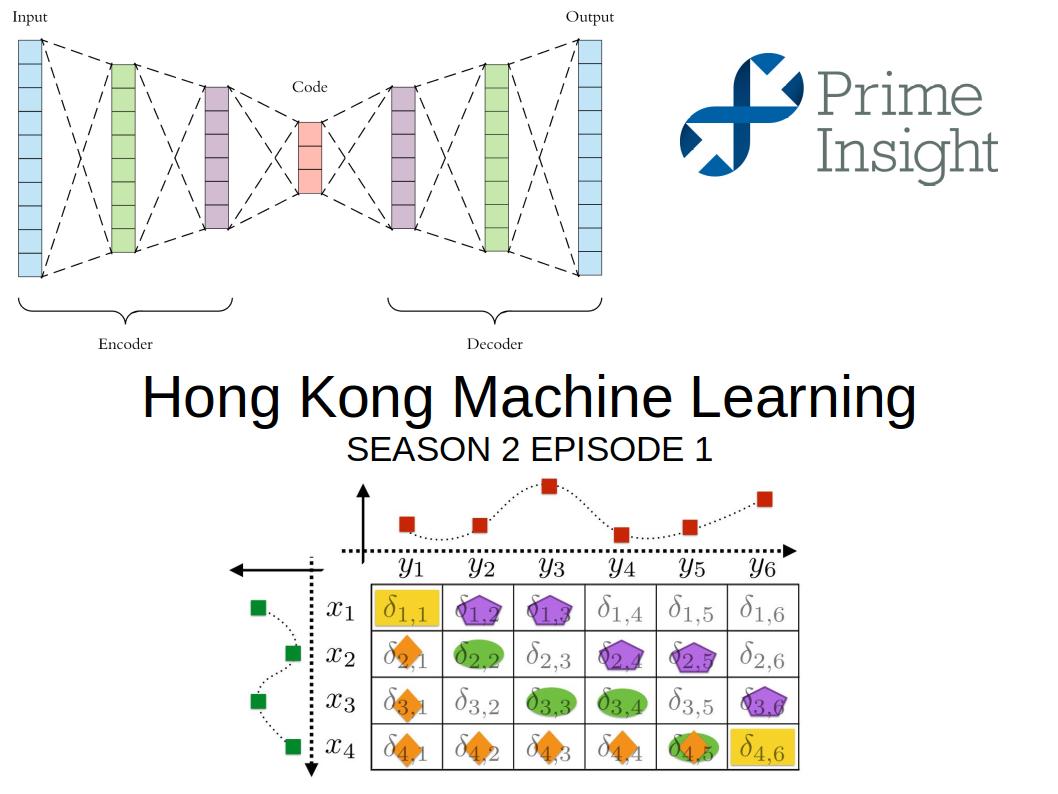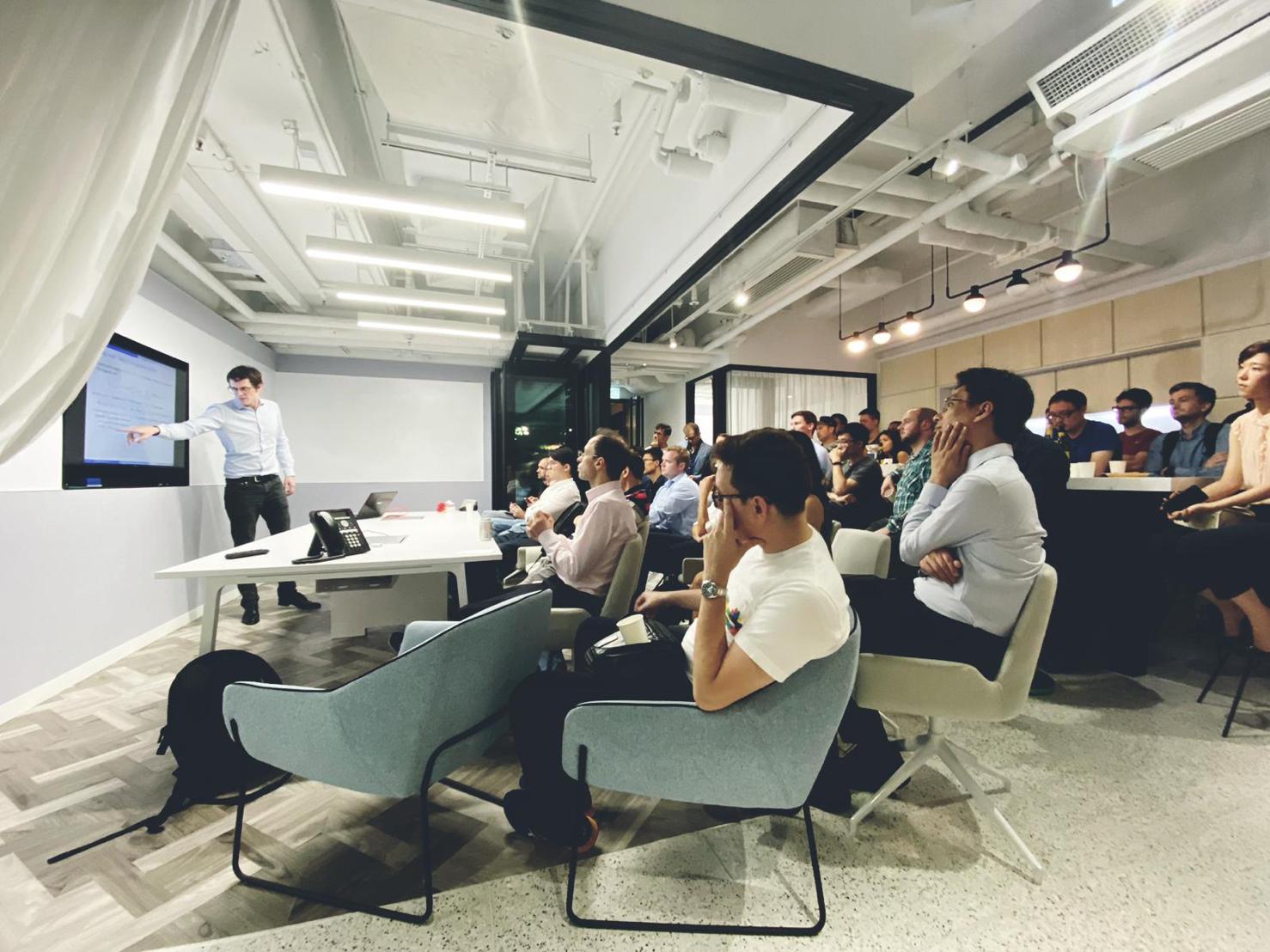[HKML] Hong Kong Machine Learning Meetup Season 2 Episode 1
[HKML] Hong Kong Machine Learning Meetup Season 2 Episode 1

When?
- Wednesday, September 25, 2019 from 7:00 PM to 9:00 PM
Where?
- Prime Insight, 3 Lockhart Road, Wan Chai, Hong Kong
This meetup was sponsored by Prime Insight which offered the location, drinks and snacks. Thanks to them, and in particular to Romain Haimez and Matthieu Pirouelle.
Programme:
Note that, as usual, errors and approximations in the summaries below are mine.
Thibault Bourgeron, Quantitative Researcher at Shell Street Labs - Dynamic Time Warping and Support Vector Machines for Time Structured Data
Abstract:
To apply machine learning techniques to time structured data one has to adopt a specific treatment preserving the time arrow. One way to proceed is to reshape the data to include it. We present a technique introduced by [Cuturi, Vert, Birkenes, Matsui, 2007] to build kernels upon these aggregated data, and apply support vector machines. The construction is a multiplicative version of the celebrated DTW technique. It can be computed in linear time and seems to have better predictive power than Hidden Markov Models for instance.
His presentation can be found here.

Félix Revert from DataRobot - Using metrics the right way
Try to convince someone that your ML model is accurate and should be trusted because it has a LogLoss of 0.34. Non data scientists will surely gawk at you while data scientists will ask for a lot more information. It’s hard to select the right measure of accuracy for a given problem. Having a standardised approach is what every data scientist should do.
Marko (a regular of the HKML meetup) mentioned the Matthews correlation coefficient for the multiclass case during the Q&A.
Alex Lau - Autoencoder and its applications
Abstract:
Autoencoder is not a new architecture, but you could notice its footprint everywhere, even in latest state-of-the-art model architecture. In this sharing, I will introduce autoencoder and its wide range of applications. I will also talk the connection between autoencoder and PCA.